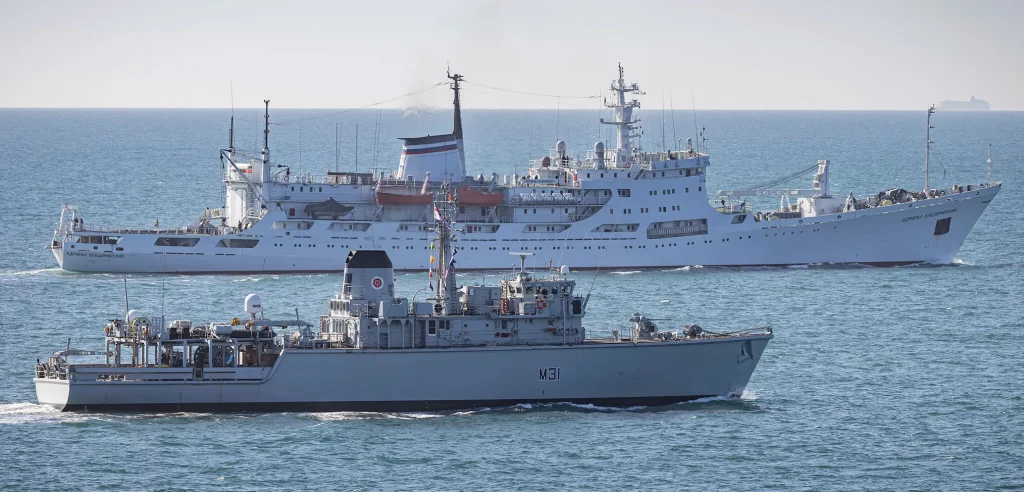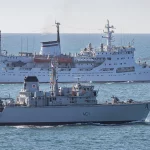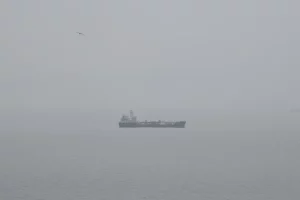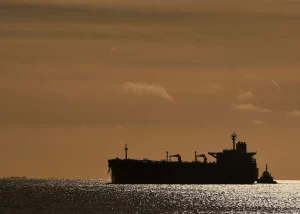The British fleet escorted Russian ships near its coasts due to suspicion of espionage

In response to the growing activity of the Russian Federation in European waters, Britain has intensified monitoring of suspicious vessels near its maritime borders.
The Royal Navy has twice been involved in escorting and monitoring Russian warships and government vessels that were in close proximity to British territorial waters. This is reported by Gospodarka Morska.
Such operations are part of the ongoing monitoring carried out by NATO countries in response to the increased naval presence of Russia in the waters of Western Europe.
In particular, the minesweeper HMS Cattistock, together with a Wildcat helicopter, monitored the research vessel Admiral Vladimirsky, which passed through the English Channel and the Strait of Dover. This vessel has been repeatedly suspected of espionage, in particular, in monitoring coastal infrastructure and underwater objects of critical infrastructure.
“Recently, HMS Cattistock has escorted several Russian ships in our waters, demonstrating the fleet’s readiness to respond quickly to potential threats. I am proud of the professionalism of my team,” said the ship’s commander, Rob Garner.
Subsequently, the British military recorded the passage of the landing ship “Alexander Ostrakovsky” and the ro-ro ship MV Ascalon, which were heading towards the Baltic Sea. The frigate HMS Somerset and the tanker RFA Tidesurge were used to monitor them.
According to the commander of HMS Somerset, Lieutenant Commander Joel Roberts, the increase in the activity of the Russian fleet in the North and Baltic Seas has forced the British Navy to maintain increased combat readiness.
“We provide presence and deterrence, offering a wide range of options — from military to diplomatic, to support the interests of the UK,” Roberts commented.
HMS Somerset also recorded the movements of Russian transport ships, which are likely transporting weapons from Syria to Russia after the Assad regime lost ground.
Against the backdrop of a series of incidents with damage to underwater infrastructure in the Baltic Sea, the West is increasingly vigilant about the activities of Russian “research” and “technical” vessels, which may be part of the so-called shadow fleet of the Russian Federation. Great Britain considers such operations important not only for ensuring security, but also for protecting economic stability and trade routes in the region.
Similar missions to monitor the Russian presence in their waters are also regularly carried out by the navies of France, Spain, Portugal, the Netherlands and Belgium. As part of a unified defense strategy, they exchange data and coordinate actions through NATO structures.
As USM reported, the day before, a fake insurance scheme of the “shadow fleet” with the participation of a Russian was exposed in Norway.





